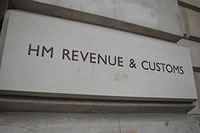House of Lords approves changes to probate fees
The House of Lords has agreed the changes to probate fees, which, it has been estimated, could cost the charity sector £10 million in reduced income.
The Peers discussed the draft regulation on 18 December. The draft Non-Contentious Probate (Fee) Order introduces a new regime of fees for applications for a grant of probate, with a banded structure based on the value of the estate. Fees would be revised to rise to up to 0.5% of the value of the estate, with the estate value threshold rising from £5,000 to £50,000. This would give a sliding scale of fees rising from £250 to £6,000 on all estates worth £50,000 or more.
There was some resistance however with some Peers comparing the proposed changes to a tax. Lord Marks of Henley-on-Thames proposed that the House decline the changes, saying they would be “an abuse of the fee-levying power, since the proposed increased fees substantially exceed the cost involved in making grants of probate and would amount to a tax, which should only be introduced, if at all, by primary legislation.”
However, 187 voted against declining the changes, versus 90 for.
Lord Beecham also referred to the Order as one that “arguably amounts to a stealth tax”, proposing a motion to regret against the Order, on the grounds that the proposed fee structure was too far above the cost of the service.
His motion was agreed however, with 186 members in favour, and 161 against. The motion however does not stop the Order, but gives the House the opportunity to put on record its regret that the increase in fees is far greater than the actual cost of the service.
The regulations were presented as a Statutory Instrument (SI), meaning it must be debated in both Houses before it can be made law. It will now go before the House of Commons and could become law in April next year.
In November, the Institute of Legacy Management also compared the changes to a stealth tax, saying that while it welcomed the drive to improve the operation of the Court Service and the need to balance the interests of taxpayers and Court Service users, the fees would have a significant impact on income for charities, and could reduce it by £10 million.
Advertisement




